AFO Sustainability
One of the fundamental pillars of science is the ability to ask questions. The current global environmental crisis is motivating each of us to rethink the norms and ways we have been operating. We are aware not only of the great responsibility, but also of the potential that comes with organising large events. Thus, during the preparation and the festival itself, we work to not only eliminate the possible negative impacts of the event, but also to initiate positive change to guarantee a better future for the planet and its inhabitants.
Each year, both the competition and non-competition programme of the festival emphasises themes related to current environmental challenges and ways to face them. Films, lectures, workshops and walks each year bring suggestions from landscapes near and far. Through the programme, we aim to create a space for exploring new paths and a society-wide discussion about experienced normality. In selecting filmmakers and jury members, the festival is careful to be gender-balanced and emphasizes the need for an intersectional approach that takes into account issues of decolonization and global inequalities.
Environmental sustainability goes hand in hand with social sustainability. We believe that science should be accessible to all and can provide the necessary communication bridges across generations and social groups. Making the festival accessible to the widest possible audience is possible thanks to the festival accreditation, which is free.
We are aware of the role the festival can play within the local community, the city of Olomouc and its wider surroundings. As in previous years, AFO strives to act as a platform and a podium for local initiatives and actors who are committed to the development and protection of the territory and the world we are part of. Thus, in the past, the guests of the festival have included not only scientists and researchers from Palacký University, with which AFO closely cooperates, but also representatives of local eco-farming and environmental NGOs.
Festival merchandise is produced in limited quantities from upcycled old materials that have been used in the past for the visual identity of the festival (banners, photo wall, festival decoration). For several years now we have been collaborating with local Czech companies and designers, such as KattyPop from Olomouc. In this way we eliminate waste and strive for circularity of the festival operation.
We also produce over-the-year merchandise with the highest quality biotextile GOTS certification. The design and elements used are specifically created to be used across subsequent years. So, in general, we strive to produce a sustainable fashion collection that guarantees long-term use and enjoyment through its timelessness and craftsmanship.
Each year we limit the amount of printed materials that the festival produces. We try to convey all the programme and necessary information primarily digitally, either through our social networks or our website. We have also replaced paper voting in the audience competition with electronic voting. We have also combined the festival catalogue and the brochure into one product – the programme catalogue, which will be charged a nominal fee and printed only in the smallest number necessary, so that visitors do not throw it away after one use. The accreditations can be reused by festival visitors across the years, reducing unnecessary production and waste associated with their production.
Being planet-friendly starts with the journey to the festival itself. Thanks to the careful planning that precedes the festival, we have long been successful in eliminating long-distance car trips and reducing the number of production trips. Another significant transformation is the transport of guests travelling to Olomouc, whom we encourage to use greener forms of travel, i.e. trains and buses. This is facilitated by our partnership with ČD within the Czech Republic, and in the local context also with Olomouc taxi services, university transport or Tesla and their electric cars.
For transport in Olomouc, we use our cooperation with Nextbike, a bike-sharing service that provides visitors with free transport in the city for the first 15 minutes after applying a special code.
The catering, which includes festival receptions and refreshments as well as catering for the crew, is composed exclusively of vegetarian and vegan food. Each year we partner with local suppliers and businesses who then supply the festival with local ingredients, from fresh vegetables for the staff catering and buffets to festival coffee, beer, wine and gin. In this way, the festival reduces emissions associated with food production and transport while supporting the local economy. Last but not least, through planning catering long in advance, we prevent the risk of food waste. When we do produce some leftovers, they go to a nearby farm for local animals.
We try to prevent waste in the first place. In the run up to the festival, we always look for opportunities to borrow rather than buy the items we need, and where this opportunity does not exist, we always look for options that will reduce the risk of waste. At the same time, sorting bins are present at all festival venues and returnable cups are on hand during evening programmes.
The festival has been continuously focusing on the topic of sustainability, nature and the environment for more than ten years. In 2021, however, the festival has decided to go down the path of conceptual planning and has created the position of Environmental Strategy Consultant for this purpose. This position is currently held by Anna Tabášková, who assists with the overall concept of the festival’s sustainability and acts as an advisory body in the event of dilemmas inevitably associated with the festival’s production with regard to nature.
We don’t want to pretend that we are doing everything right and that all sustainability issues are clear to us and paint things green. Festival sustainability is an area where we don’t often come across a clear-cut answer, and there is no such thing as a perfectly sustainable festival in this sense. Two aspects of festival production that we see in this light are the energy required to run a film festival and the opportunities to measure the environmental, economic and social impacts of the festival. Also in order to gather tips, experience and know-how, we are currently working on deeper interconnections and cooperation with other environmentally-minded festivals.
We are happy for anyone who decides to join our efforts to make the festival and its impact as “green” as possible. And there are plenty of opportunities:
- you can replace meat dishes with a plant-based diet
- use your water bottle and drink tap water if possible
- arrive by means other than a private car
Visitor transport to the festival is a non-negligible factor in its overall environmental impact. Therefore, if you have the opportunity, take the train, bus or car sharing.
More broadly, we hope that AFO inspires collective change in addition to individual acts of sustainable behaviour. That it sows the seeds of curiosity and courage to ask the questions that will determine the future of our planet. If you want to join us in our quest for a greener future, don’t leave the stories, questions and themes you will encounter during the festival at the doors of the film halls and among other festival-goers. Even a chat with a friend, colleague or family over coffee can make a significant difference! 🙂 On this topic, we recommend Dr. Ayana Elizabeth Johnson’s TED Talk..
We know that we are not perfect and that it is always possible to push ourselves further. We want your opinion! Can you think of what we could improve, move forward in the area of sustainability at AFO? Would you like to work with us on a greener future for the festival? We would be grateful for any suggestions at tabaskova@afo.cz
Academia Film Olomouc
28. – 3. 5. 2026
61ST INTERNATIONAL FESTIVAL OF SCIENCE DOCUMENTARY FILMS
Follow our social sites and explore our web to find out more about the programme. We will supply you with science dose by dose until the climax comes – AFO61.
Contact
Arts Centre of Palacký University
Academia Film Olomouc
Univerzitní 225/3
779 00 Olomouc
Czech Republic
afo@afo.cz
Quick links
Copyright © AFO 2000-2025 | web rostanetek.cz | admin







